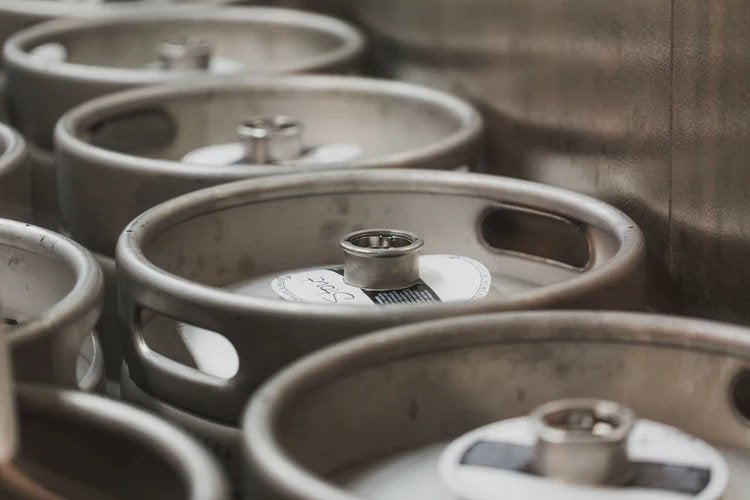
Kegs: From Ye Olde Barrels to Party Stars!
Share
The keg, an indispensable vessel in the beverage world, boasts a history as rich and varied as the drinks it contains. In tracing its journey, we uncover a legacy that spans centuries and reflects advancements in both technology and consumer needs.
The Beginnings: The Roman Era and Wooden Barrels
The origins of the keg can be traced back to ancient civilizations, notably the Romans, who first recognised the utility of wooden barrels. Crafted meticulously from oak, these barrels were not only sturdy but also imparted a unique flavour to their contents. For many centuries, they remained the primary means to store and transport a plethora of goods, with beer and wine being particularly notable.
The Transition: Embracing Metals in the 19th Century
As the world entered the industrial era in the 19th century, changes were afoot in the world of keg design. With advancements in metallurgy, wooden barrels began giving way to their metal counterparts. Steel kegs, in particular, emerged as a preferred choice for breweries and distilleries. They were more durable, less porous, and significantly easier to maintain and clean, ensuring a more consistent quality of the stored beverage.
Metric Adoption and Diverse Sizes
With the embrace of the metric system in countries like Ireland, keg measurements underwent a shift. The voluminous 50-litre kegs became prominent fixtures in pubs and breweries. However, recognizing the varied needs of consumers and venues, the industry innovated further. This led to the introduction of a range of keg sizes, from the sizable standard kegs to more compact versions. The 5L kegs, pressurised 5L variants, 6L PerfectDraft Kegs, and the 8L Blade kegs are just a few examples that cater to different settings and preferences.
Beyond Beer: Expanding the Beverage Horizon
Though kegs were historically synonymous with beer, the modern keg has broadened its horizons. Today, these containers are employed to store and serve a diverse array of beverages, including ciders, wines, and even non-alcoholic options like kombucha, reflecting the evolving tastes and preferences of consumers.
Sustainability in Focus
In an era where sustainability is paramount, kegs represent an environmentally friendly option in the beverage industry. Their ability to be reused multiple times ensures a significant reduction in waste compared to single-use bottles and cans.
Concluding Thoughts
The keg, from its rudimentary wooden origins to its sophisticated modern variants, is a testament to human ingenuity and adaptability. As we sip beverages from these vessels, we are not just enjoying a drink but also partaking in a tradition that has evolved over millennia.
